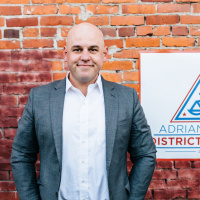
Concerned citizen asks Adrian Kamada, Stacey Eads, Michael Acosta…
Prosecution of individuals who are an Accessory to a crime
Statement:
If a person is caught helping another commit a crime then that person would be arrested and tried as an accessory to that crime. Example: lookout/getaway driver during a robbery would be charged with robbery.
Question: Would you as the new district Attorney co-ordinate with the Humboldt county sheriff department to arrest and prosecute seasonal workers found on illegal cannabis farms during the serving of a warrant. If the workers knew the farm was illegal (paid in cash with no federal 1099 tax form) would you file charges?
Reasons: illegal cannabis farms out number legal farms eight to one in Humboldt county.
Humboldt county sheriff department does not have the resources to enforce all the cannabis permit laws. The most equitable way to curtail illegal farms is to limit available farm workers.
— Concerned citizen
Responses

Adrian Kamada
Concerned Citizen,
The most effective method of holding unlawful cannabis growers accountable is, where the evidence can establish their role and identity, prosecuting the knowing landowners and/or the person(s) managing the grow operation.
The District Attorney is authorized to prosecute such offenders using criminal and civil sanctions. Government agencies such as Fish & Wildlife, the California Water Board, CalFire, or others also have separate administrative authorities to enforce the law with methods such as fines.
The facts of each case determine the most effective tool(s) to use: criminal actions, civil actions, or administrative actions. In rare cases all three actions may be appropriate. More commonly, an administrative case against the landowners who allow violations to occur on their property may be the best option.
For brief background, it is generally not necessary to charge a cannabis worker as an “accessory” because such workers are already committing the underlying crime of unlawful cannabis cultivation. However, you are correct, that person may be charged as an “accessory”. Accomplice liability subjects a person to the underlying charge if the person aids, facilitates, promotes, encourages, or instigates the commission of a crime, or engaged in a conspiracy to commit a crime. That person is generally subject to prosecution just the same as the individual that personally commits the crime.
On a side note: An accessory before-the-fact can be charged with the underlying crime, whereas an accessory after-the-face can be charged with a violation of Penal Code section 32; similarly, conspirators are generally criminally liable for the underlying crime but can also be charged for a separate crime under Penal Code section 182(a).
What it comes down to is two things: what are the most effective tools the D.A. can use to deter future criminal conduct, and what is the best way to hold the individual responsible for their offense? The latter involves a consideration of the level of culpability as shown by the evidence. The former looks at the practical considerations in a prosecution.
As a practical matter, essentially nobody involved in an unlawful cannabis operation is deterred by facing a misdemeanor conviction that has a maximum penalty of 6 months in jail, a $500 fine, or both.
Even if that penalty was sufficient to remove that worker, the managing operators can easily replace them, even under recent conditions where the workforce has declined as profitability has declined. The same lack of a deterrence effect is true where more culpable parties, like day managers, “grow bosses,” or knowing investors get busted but do not actually own the land.
It’s common practice in our county for landowners to lease or enter sales contracts with people they know are going to use the property for an unlawful cannabis cultivation operation. Many people have made money by taking large down payments and including contract terms that require major balloon payments, typically at the end of harvest season, which the purchaser often cannot afford. The landowner retakes the property, keeps all payments, and does it all over again. This results in the landowner making a considerable profit, and next season the site will hold another illegal grow.
That is why is makes the most sense to focus on the landowners when evidence shows that they had knowledge of the unlawful grow operation. But again, the criminal sanctions are weak. On the other hand, civil penalties can be significant, which acts as a greater deterrence. When the landowner faces major economic losses they are less likely to lease to unlawful growers, who in turn won’t be hiring people to work on the grow.
At the D.A.’s office I was the vertical (lead) prosecutor for felony cannabis cases, environmental crime, drug labs, and arson, and also handled the office’s civil matters. I have seen many different factual scenarios in the cannabis enforcement world and have taught classes to police investigators from across the state.
From my experience, there are numerous ways to hold people accountable for unlawful growing operations, but it always depends on the specific facts that we can prove it court. In general, for the reasons stated above, I do not think that prosecuting cannabis workers is an effective method of deterrence.
Respectfully,
Adrian Kamada

Michael Acosta
I answer this with respect, as you took your valuable time to formulate the question, and it does come up as a situation, so I will be brutally honest with you, as you can always expect me to be.
No. Here is my reasoning.
If you substitute coffee or tomatoes or any other agricultural product for cannabis in your question, then the answer would surely be negative. I wouldn’t prosecute seasonal workers of an illegal tomato grow just because they aren’t receiving a 1099 or don’t have a permit to grow a greenhouse full of tomatoes.
This is civil regulatory stuff that should be with the IRS (as you mentioned no 1099s)l the FTB, the Cannabis Control Board, the DOL, and any environmental agencies whose stewardship is invoked. I do believe in the prosecution of environmental crimes, but that goes equally for the legal growth. I don’t think we should use environmental crimes to make cultivation cases felonies again, as Mr. Kamada does, under any circumstances. If the environmental crimes are themselves a felony, then I would prosecute it, but to piggyback misdemeanor cultivation onto a misdemeanor environmental crime to charge someone with a felony is trumping it up. That’s like pulling you over for a misdemeanor DUI and finding a small oil leak in your engine and then calling it a felony DUI. What kind of logic is that?
I would also like to point out that the DAs budget, which hovers in the single-digit millions, is far less than the Sheriff’s $42 million dollar annual budget. And if you consider the multiagency raids that we have here, then the law enforcement budget cumulatively has got to easily exceed $100 million in Humboldt County, with a population of 132,000. That’s $757 dollars a year on enforcement per resident in Humboldt County, and the vast majority of people here are not criminals.
Humboldt County went the entirely wrong way with the legalization of cannabis by overregulation. That’s how all the other counties and states are overtaking Humboldt in cannabis revenues. Humboldt County should just completely deregulate cannabis production, other than water laws, other environmental laws, DUI, and protecting the youth from it, and become the Mecca of legalized cannabis that it should now be. With Cannabis shops on every corner. License cannabis in Humboldt the way Disneyland licenses Disney souvenirs in Disneyland. Make it one big Cannabis Theme Park. Then we’d all be rich again.
Seriously though, I have never believed in the prosecution of marijuana cases, ever since I first smoked pot in college. I am not going to sell out now because of economics.
Remember, the first time you smoked pot?
Dude…It’s a plant….a plant, man……..it’s a plant.
